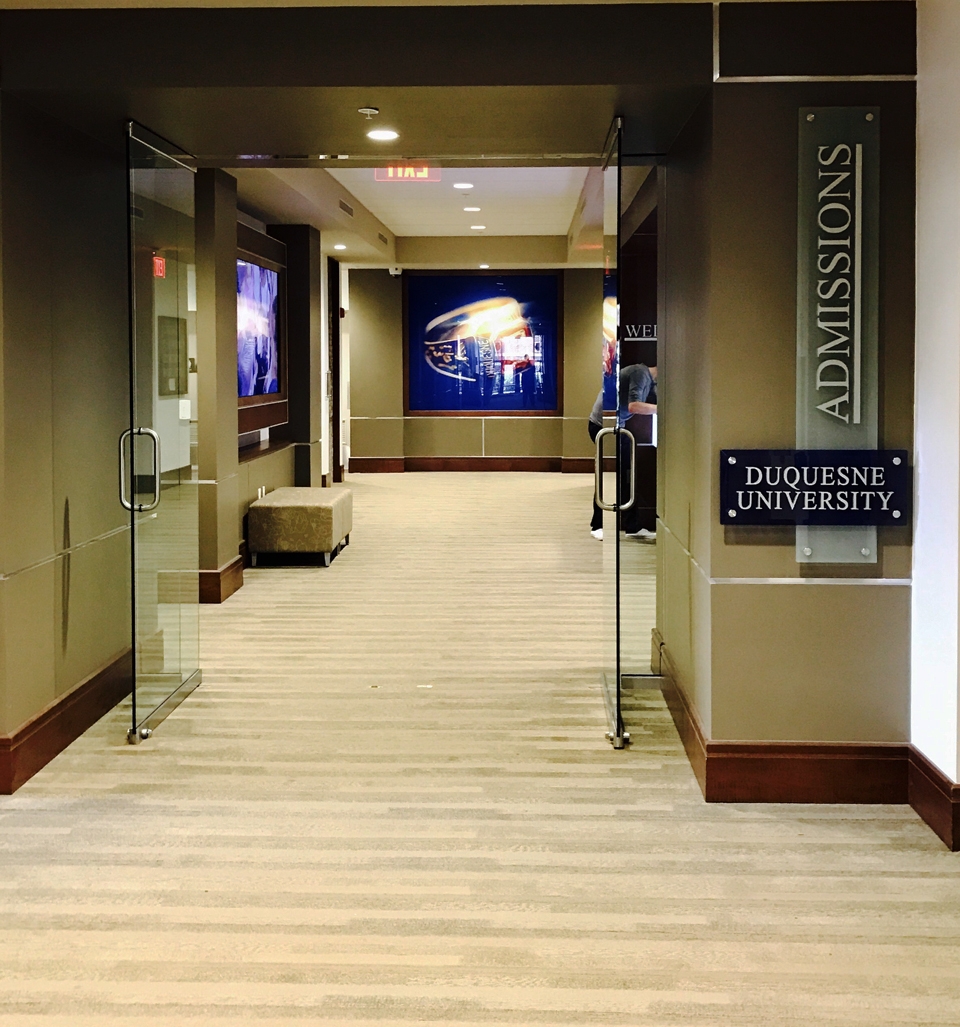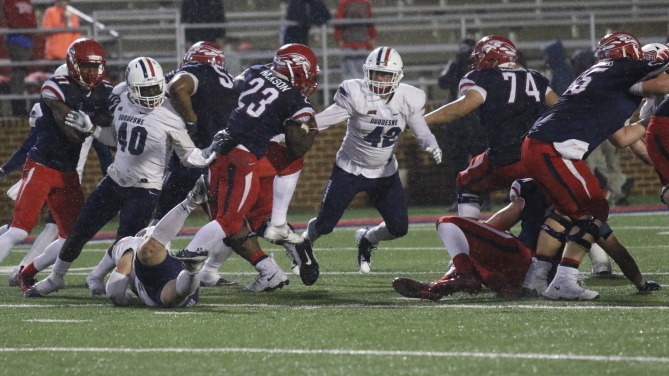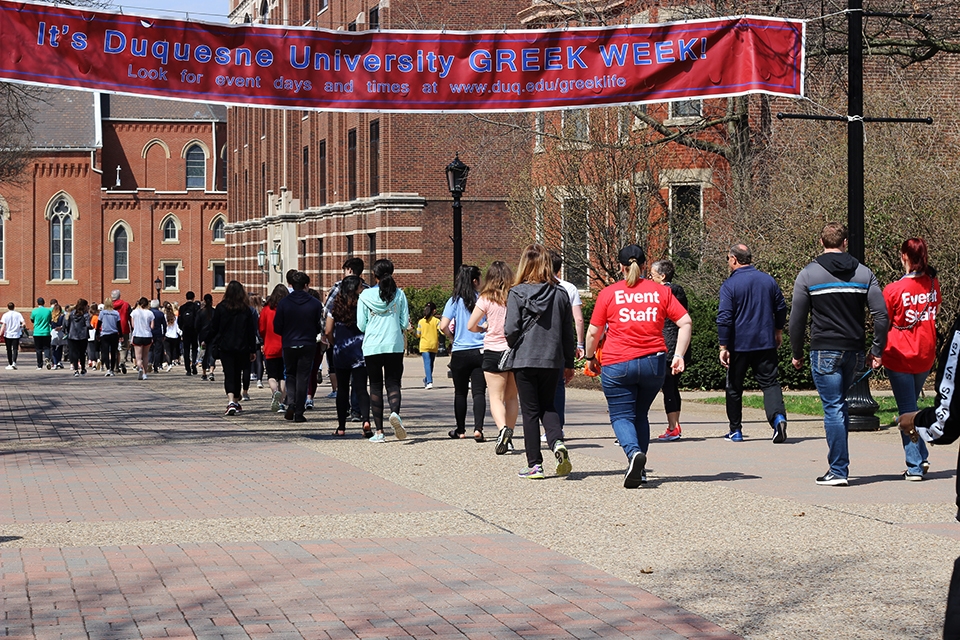
Duquesne’s admissions and financial aid offices are based in the Old Main Building. Financial aid questions can be addressed by visiting them during business hours.

Duquesne’s admissions and financial aid offices are based in the Old Main Building. Financial aid questions can be addressed by visiting them during business hours.
Raymond Arke | News Editor
10/12/17
Student loans are often the bane of college students, an extra worry piled on to class work and job prospects. Now there is more cause for concern as one of the nation’s largest student loan companies is being sued by the Pennsylvania Attorney General, Josh Shapiro.
Shapiro announced last week that he is suing the student loan company Navient over “widespread abuses in their student loan origination and servicing businesses,” an Oct. 5 press release from the Attorney General’s office said. The suit will take place in the U.S. District Court for the Middle District of Pennsylvania.
Navient is a spin off of the large lending company Sallie Mae in 2014. Sallie Mae actually lends the money, while Navient services those loans, both private and federal.
The press release layed out Pennsylvania’s case against Navient, which the office predicts could affect “hundreds of thousands of Pennsylvanians.” It notes that Pennsylvania has the second highest average student loan debt for college graduates in the nation, nearly $36,000.
Shapiro is accusing the company of purposefully acting in a way that harmed consumers. Navient is said to have made predatory, subprime loans to students at universities, both for-and-non-profit, that have graduation rates below 50 percent. Subprime loans describe the type of loan offered to borrowers that are likely to default, according to Investopedia.
The press release also noted that Navient continued to increase the amount of subprime loans offered, which increased the overall amount of loans they had. At the same time, the company became a “preferred” lender at many schools, which allowed it to get more legitimate loans.
Navient is also accused of purposefully diverting student to short-term loan forbearances, which postpones loan payments but adds more interest onto the student’s debt. Instead, Shapiro said Navient should have been letting students apply for a different, more forgiving income-driven replacement plan.
Navient, however, denies the allegations as false.
“The allegations are completely unfounded, and the case was filed without any review of Pennsylvania residents’ customer accounts,” said Nikki Lavoie, director of Corporate Communications for Navient. “We comply with the rules that govern the student loan program as set by Congress and the U.S. Department of Education, and there are no allegations that we have violated these rules.”
Lavoie said that rather than hurting students, the company has a good track record when it comes to aiding student borrowers.
“Navient is a leader in helping student loan borrowers succeed; in fact, 49 percent of balances serviced by Navient for the government are enrolled in income-driven repayment plans and Navient-serviced borrowers are 37 percent less likely to default than those serviced by others,” she said.
She affirmed Navient’s intention to fight the lawsuit.
“We will vigorously defend our record in court, and are confident we will prevail following an impartial review of the facts. In the meantime, we will continue to provide industry-leading service to our customers,” Lavoie said.
John Falleroni is the associate director of Financial Aid for Duquesne. Since schools don’t have a choice in what company acts as the servicer of federal student loans, it is unknown how many Duquesne students have Navient for that purpose, according to Falleroni.
However, when it comes to private loans, Falleroni said that in the 2016-2017 year, Sallie Mae was the largest private lender used by Duquesne students.
“Roughly, 38 percent of Duquesne’s private education loan disbursements came from students choosing Sallie Mae over all other private education lenders,” he said. “Therefore, I would think many of our students will be dealing with Navient for re-paying their private education loans and a fair amount will use them for federal loans.”
Falleroni also said that if Shapiro’s allegations are true, it would be “troubling.” However, he believes that most students don’t have to worry too much.
“From what I have read, allegedly, Navient was targeting students from schools with bad default rates. Fortunately, Duquesne has a default rate much lower than the national average and our graduation rates are very good,” he said, which makes it unlikely that Duquesne students were potentially hurt.
The lawsuit seeks “full restitution to all borrowers affected by Navient’s unlawful practices,” along with Navient releasing any unlawfully gained profits, among other damages, the Attorney General’s press release read.
Students who may have been affected by Navient’s alleged practices are encouraged to file a complaint with the Attorney General’s office either through an online form, https://www.attorneygeneral.gov/Complaints/Consumer_Complaint_Form/, or by calling 800-441-2555 or emailing scams@attorneygeneral.gov.




